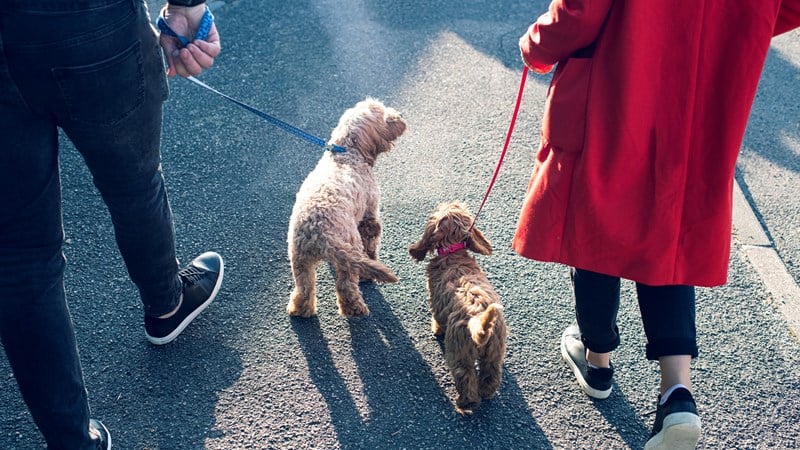
Puppy advice
Read our puppy advice articles to help you keep your puppy happy and healthy
Need more puppy advice?
-

Spotting and Handling Behaviour Changes In Dogs
Behaviour changes in dogs can be for a number of reasons, and may be hard to stop. Find out more about how to spot & handle behaviour changes in your dog here.
-
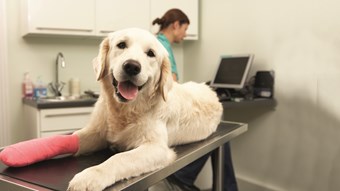
General anaesthesia for pets
General anaesthesia may be given to cats, dogs and other small pets who need a procedure where they need to remain still. Find out more about our services.
-
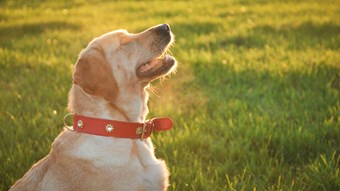
Can dogs get sunburn?
In the heat of summer, dogs can get sunburned. Find out how to protect them and avoid the dangers of dog sunburn with sunscreen.
-
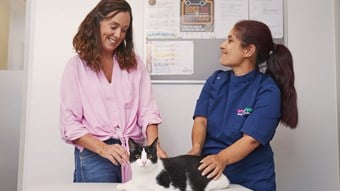
How preventative health care can save you money
The simplest way pet owners can give their pets a chance of a long, illness-free life is by keeping them as healthy as possible, and it will save money as well!
-
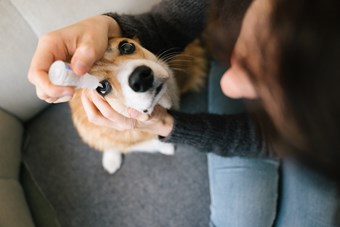
How to give eye medication to dogs
One of the most common ways to treat eye conditions is by using eye drops or ointment. Click here to read more about giving eye medication to dogs.
-
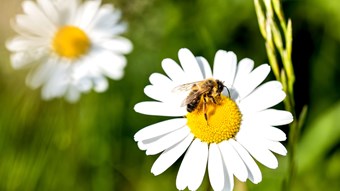
What to do if your dog has been stung by a bee or wasp
What to do if your dog has been stung by a bee or a wasp. Get expert advice on bee stings in dogs from the experts in pet healthcare from Vets4Pets
-
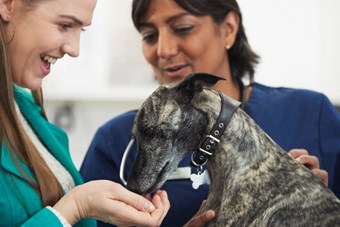
Gastroenteritis in Dogs
Gastroenteritis in dogs is a condition affecting a dog’s stomach and intestines. Find out about what causes gastroenteritis and the treatment available.
-

Pancreatitis in dogs
Spot the signs of pancreatitis in dogs & get expert advice on treatment from Vets4Pets. Vet recommended diets and treatment for canine pancreatitis.
-

Dogs in season
Spot the signs that your dog is in heat/season and get expert advice from our vets on what to do and how to help your dog.
-
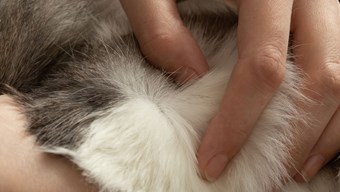
Why isn't my flea treatment working?
It can be frustrating, disappointing and expensive if you've bought flea products, only to find later that your pet still has fleas. Find out more.
-
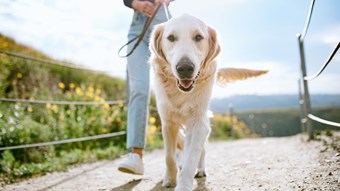
Burnt Dog Paws and How to Treat Them
Dogs can burn their dog paws by walking on hot pavements so look out for the signs and understand what treatment is available for burnt dog pads.
-

When is it OK to give my dog ice?
Lots of dogs enjoy a cool treat when the weather is hot, but is it safe to give ice cubes and will it actually help them cool down?
-

How to Spot and Treat Yeast Infections in Dogs
How to spot and treat yeast infections in dogs. Yeast infections occur in dog's belly, ears & paws, spot the symptoms and get the right treatment for your dog.
-

Conjunctivitis in dogs
Our dogs depend on their eyes just as much as we do – so click here to see the tell-tale signs of conjunctivitis, and consider how it’s treated.
-
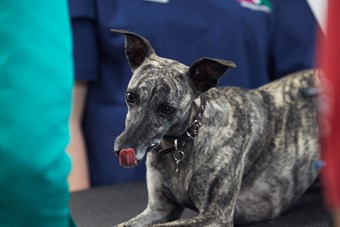
Cataracts in dogs
Discover the symptoms, treatment and causes of cataracts in dogs. Find out more about this eye condition and your pet's treatment options here.
-

Corneal ulcers in dogs
Discover the symptoms, treatment & causes of corneal ulcers in dogs. Find out more about this eye condition and the treatment options available.
-

Cherry eye in dogs
Discover the symptoms, treatment and causes of cherry eye in dogs. Explore our guide on this eye condition, as well as what you should do when this occurs.
-
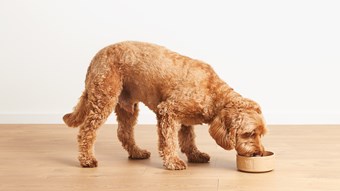
How to change your dog's food
Sometimes, during a dog’s life, it may be necessary to change their diet. So how do you safely swap your dog onto a new diet?
-

How to look after your dog's paws in the winter
Have you ever stopped to wonder whether your pet feels the cold, how their paws feel in the frost and snow, and why their toes don’t freeze?
-

How to tell if your dog's poo is healthy
Explore the differences in healthy vs unhealthy dog stool, and the signs to look out for to indicate your dog needs to see a vet. Read more online at Vets4Pets.
Puppy FAQs
You’re quite right - adolescent puppies can be every bit as wayward and distracted as human teenagers!
Go back to basics and practice your training in ‘safe’ environments with no distractions and lots of positive rewards for correct behaviours, and be reassured that this is likely to only be a phase that they will grow out of.
If you are not sure how best to approach this we would suggest finding a qualified dog trainer to work with or click here for more dog training advice.
Lead walking is something to practice with short sessions at home before you go out for a walk.
Start by teaching your dog to sit and stand comfortably at your side. Remember to reward them regularly, giving your dog a treat whenever they don’t pull. Slowly build up to taking some steps around the room or garden, being sure to stand still every time pulling occurs.
Read our top lead training tips here
They could be barking because they’re friendly and excited, or it may be that they are anxious and aroused.
In either case, it’s really important that you don’t try to punish or dissuade the behaviour since this could create a problem or make it worse.
If you are concerned please talk to your vet for more advice.
Just like wolves, dogs howl when they are trying to communicate at a distance with their pack members.
This suggests that your dog may be feeling distressed when you leave them, and we would suggest talking to your vet for more advice.
Read about separation anxiety in dogs here
Puppies will quickly learn to settle and sleep through the night as they get older.
For very young pups, night-time can be too long to go between toilet breaks. So you may have some broken nights sleep for the first weeks or months that your pup is with you.
Aren’t puppies delightful? This is likely to just be a ‘phase’ that they quickly move on from, but it would be worth making sure that they are up to date with their worming. If the problem persists please talk to your vet in case there are signs of a medical condition.
It sounds like he also had his kennel cough vaccination today, which is usually administered as a squirt of liquid up one nostril.
It’s perfectly safe for him to be given this at the same time as his injected vaccine, and provides important protection for when he comes into contact with other dogs or has to stay in kennels.
Kennel cough vaccination lasts for a year so it will need to be repeated alongside his booster vaccination in the future.
Spaniel ears are, by design a bit prone to collecting dirt and getting waxy and smelly.
An occasional squirt of ear cleaner is not a bad idea, but needing to do it twice a week and only in one ear seems a bit excessive - it’s probably worth getting your vet to check that there isn’t an infection or foreign body in there that’s causing a problem.
Health Plans to keep your puppy healthy
At Vets4Pets we offer a range of Health Plans that make essential routine treatments more affordable. You'll save money on things like annual vaccinations, flea and worm treatment and routine health check-ups.
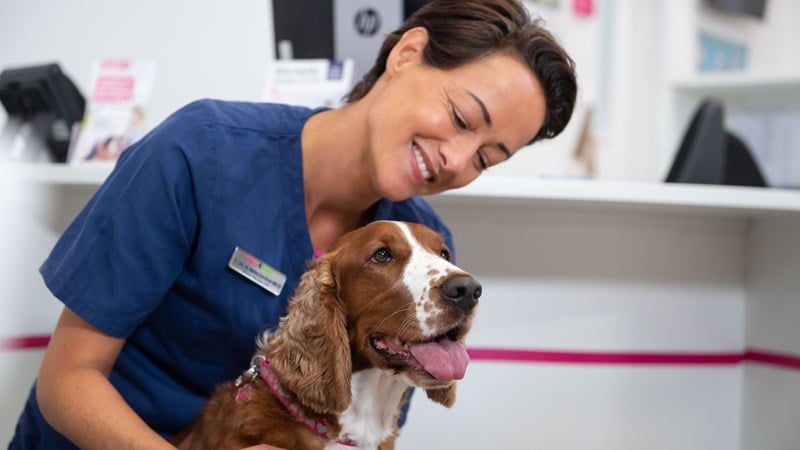
Join our free VIP Puppy club
Join the club for expert advice and tailored offers, including £30 off our Complete Care Health Plans
